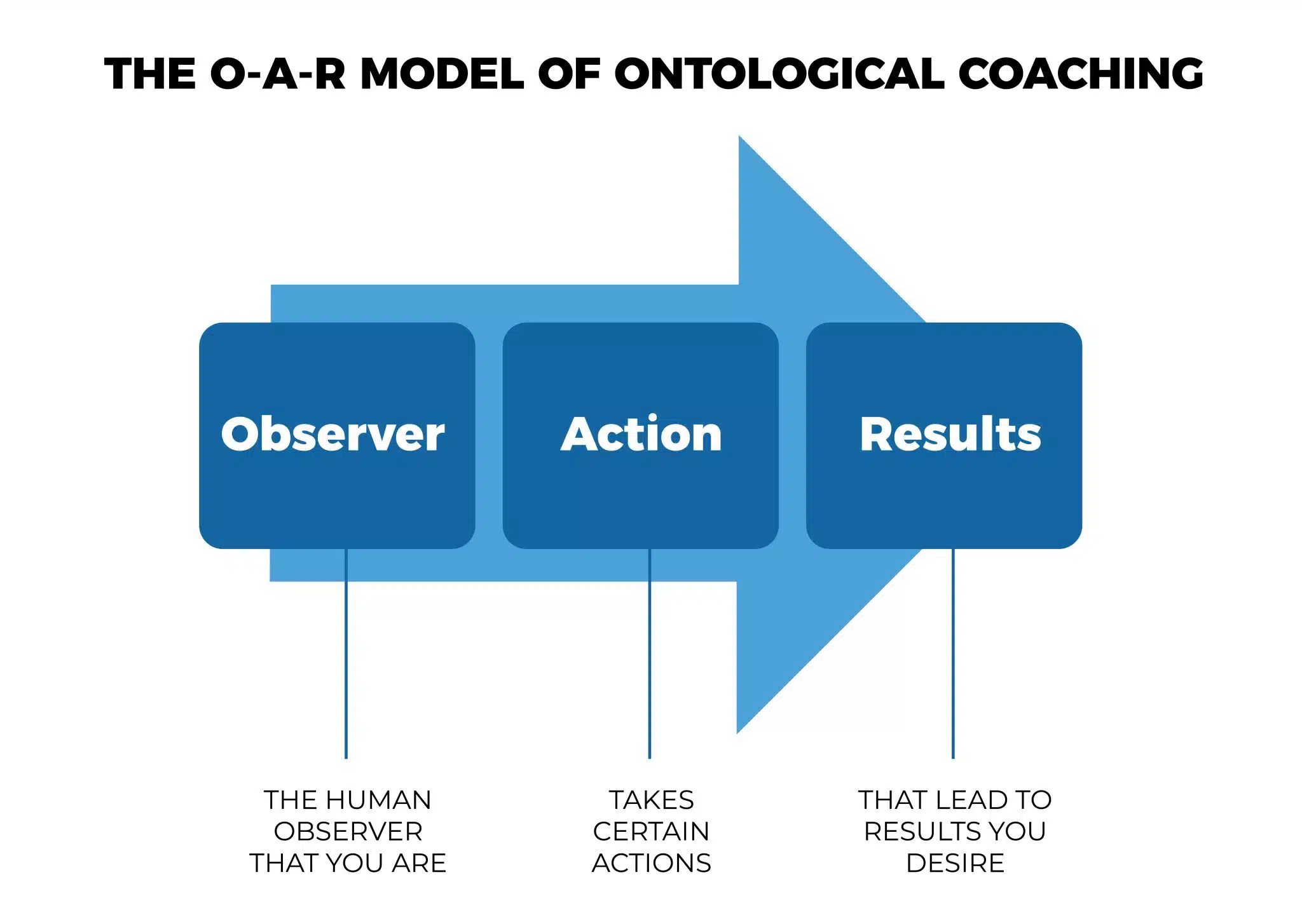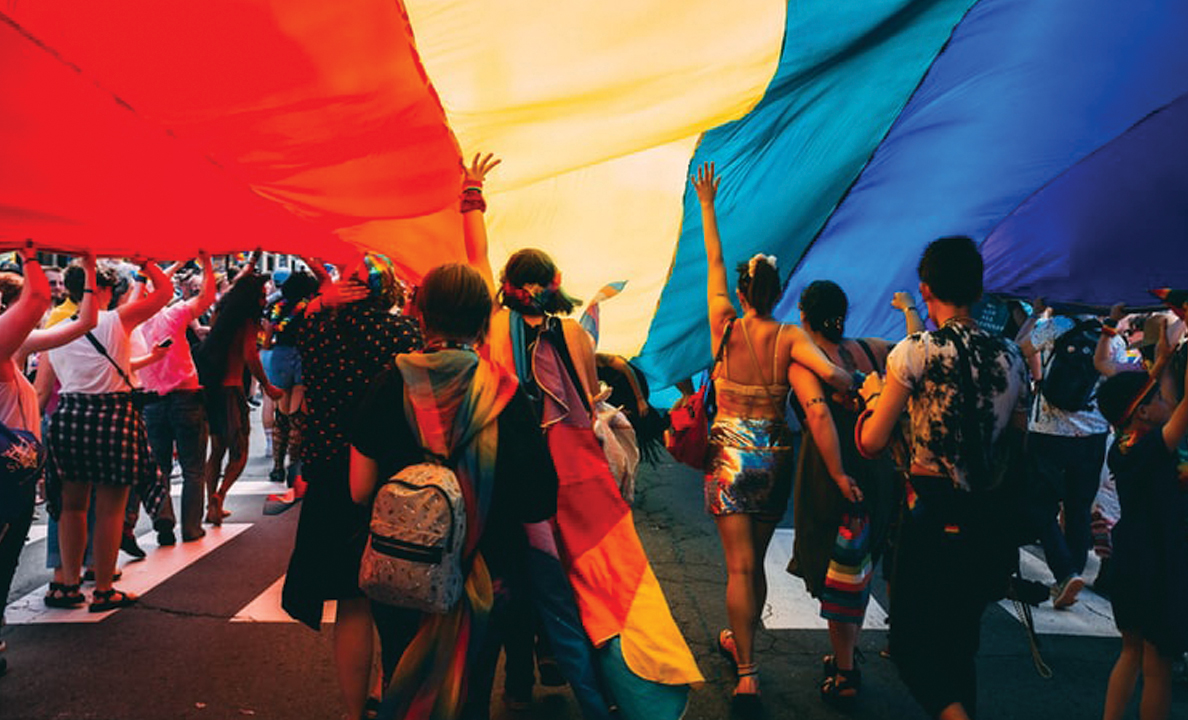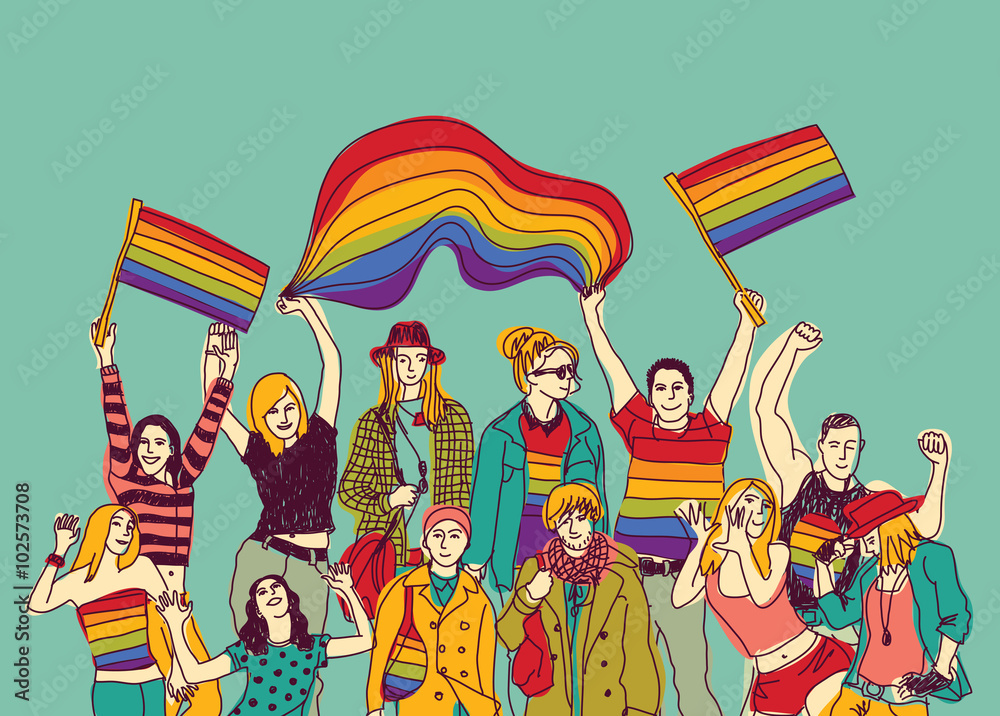In the world of ontological coaching, we look closely at two key distinctions when observing conduct: the observer and the offers. The former allows us to look at people without judgments and with radical curiosity, while the latter helps us articulate and place that person’s abilities and strengths in the context of creative and meaningful work, both professionally and personally. What, then, can we learn from the LGBTQIA+ experience? What can such an observer teach us about ourselves, our society, and our collective fears? In what ways is our observer similar, and where exactly do our differences lie?
Thinking about people and their observers invites us to examine the ways in which that person’s perspective is constructed and how it creates their realities. What can an architect see when walking the streets of downtown Chicago that a doctor may miss? What can your son see when interacting with a video game that you don’t? Similarly, as coaches, we often ask our coachees to look closely at themselves as “offers,” trusting that an adequate articulation of the self as an offer will provide insights into that person’s role in their current context and heightened self-awareness that could expand possibilities in their lives, or others’.
This approach, I believe, allows us to look at things that unite us in a shared human experience but are often seen through different lenses. If done correctly, it can help us notice things we have missed, opportunities for growth we might ignore, and possibilities we might be excluding out of ignorance.
How the LBGTQIA+ Experience Contributes to Ontological Coaching
 Here, I will share with you five domains that I think we can examine from the queer experience—five domains that, although they may look different for LGBTQIA+ people, are absolutely common ground in our lives. And because coaching is all about questions, I will also offer some you could try in conversations with yourselves or others to keep the dialogue going and to learn more about the other person’s world.
Here, I will share with you five domains that I think we can examine from the queer experience—five domains that, although they may look different for LGBTQIA+ people, are absolutely common ground in our lives. And because coaching is all about questions, I will also offer some you could try in conversations with yourselves or others to keep the dialogue going and to learn more about the other person’s world.
Freedom
Eufrosina Cruz describes in her book Los sueños de la niña de la montaña (The Dreams of the Girl in the Mountains) an experience with one of her teachers who was a key character in her story of leaving a context with oppressive and limited outcomes for her future toward a more luminous one. She explains how she later found out that her teacher was gay and claims that it was because he knew what it was to not have freedom that he would defend it fiercely. Of course, freedom is a broader concept than just coming out of the closet, but for several queer people, being “in the closet” is closely tied with fears from childhood and adolescence. We are talking about deep feelings of shame and repression born and grown deep in the unconscious during the most formative years for the self. Coming out of that state (or close to it) can truly feel like being freed from a prison you didn’t even know you were in; or at least that’s how it felt for me.
Ask: Do you think freedom is earned or accesses? In what ways are you free?
Authenticity
One artistic discipline I haven’t explored is acting. I can do silks to explore my fear of falling or paint to practice the distinction of the observer in a more tangible way, but acting? The thought of being someone else feels very distant now. It’s as if I were going back in time and reliving what I did for most of my childhood, adolescence, and young adulthood. Consider the trans community and the challenges they face in seeing a body they identify with, being called a name that resonates with their identity, and feeling safe while walking the streets in the body they inhabit. Answering the big “who am I” question might be a monumental endeavor, but I believe several queer people have had to grapple with this question for much of their lives, in various ways.
Fisher’s The Knight in the Rusty Armor discusses the armors we wear, sometimes without even realizing it. Queer people may wear armor out of necessity, and we know our armor well because we constructed it. Authenticity, being yourself, can be one of the most liberating experiences in life. It has the power to free us from the prison of caring too much about others’ opinions of us. I would venture to say that after coming out, caring about others’ opinions of me felt insignificant. Just imagine what it would mean to truly, ontologically, not care about others’ perceptions of you (provided we’re not discussing complete indifference toward societal perspectives, but rather unnecessary, often destructive, and inaccurate real or imagined comments about yourself). What possibilities do you think that might open?
Ask: In what ways are you not true to yourself? When was the last time you gave up something great because you cared too much about what others though?
Self-image
Did you grow up seeing what weddings looked like? Did you imagine when you wanted to become a parent? Did you see happy or sad endings in movies with people who looked very much like you or who you wanted to be? That has not been quite the case for several LGBTQIA+ people. For some, this has meant living a life that has never been represented, while for others, it has meant having to figure out exactly how their life should look. It’s only in recent years that we have started to see more queer representation in media in some parts of the world. GLAAD does a great job of honoring those who are not only pushing the needle on representation but also ensuring that this representation includes as many diverse faces and textures of the queer experience as possible. However, this progress is recent. If you, like me, were growing up in South America, what you would see on TV about the future of a queer person would be death, mockery, or both. How can we grow up to become leaders with that self-image? How can we grow up at all? If we were truly allowed to be ourselves, all movies would be queer.
Ask: How would your parents describe you? How different are you from how you were before you came out? (Assuming the person has gone through that experience)
Justice
If you haven’t already, take a look at Oscar Wilde’s essay De Profundis, written while he was incarcerated on charges of gross indecency. It’s fascinating. Wilde knew that what was happening was unfair, absurd, and hideous. I’ve always admired the clarity of thought of that man and feel profound respect for his ability to articulate so clearly a flaw in the judicial system, despite having his public image shattered and living for years in precarious conditions. The LGBTQIA+ experience and history reveal how wrong humans can be when deciding what is wrong. Stories from queer people in the past and present reveal how far hate can go and how absurd and insidious its mechanisms of oppression can become—from excessive bullying of children to the belief that being gay is reason enough to be killed.
Ask: What is justice?
Love
Obviously, queer people fall in love. One of my closest friends, who is now in his 80s, often shares with me how he and the love of his life had to keep their relationship secret for most of their time together. The private and the public have been constant themes in the LGBTQIA+ narrative. But even in modern times, we are learning so much more about ourselves thanks to the exploration and questioning of dominant narratives around love. Some people are now finally feeling comfortable exploring their bisexuality, while the ace and aro communities are showing us how love, affection, and romance can look very different from what we’ve learned. Ace: What Asexuality Reveals About Desire, Society, and the Meaning of Sex by Angela Chen offers valuable insight into the ace experience and their contributions to our understanding of love and romance.
I continue to be fascinated by exploring the ways we love. I can say I know how it feels to romantically love another man and what that has taught me about myself. I know how it feels to love in secret. And I know how it feels to love in shame.
Ask: What would you do if a relative came out to you? What if this is one of your children?

Image credit: https://newsroom.lmu.edu/administrative/a-brief-history-lesson-on-the-lgbtq-experience/
Diverse LGBTQIA+ Experiences Lead to Diverse Learning
It is important to mention that the queer experience looks very different for everyone in the world depending on their upbringing, socioeconomic status, race, and more. It would be incorrect to say that the domains I am about to describe apply to every LGBTQIA+ person in the world. I once dated a white Dutch man born in the 70s at the same time that I was reading Alan Downs’ The Velvet Rage, and he could not relate to most of the themes described in the book. He had not grown up with shame (or so he claimed), had not felt discriminated against at work, and being gay just never seemed to be a big deal in his life. I, on the other hand, grew up in Ecuador in a Catholic household and did both my undergraduate and graduate education in the United States.
The queer experience is far from homogeneous. It can be challenging to be gay in Ecuador, but at least it is legal; it is not legal in Lebanon. It is not the same to try to date while living with HIV in Ecuador, where stigma due to misinformation and religious narratives is as cruel as you can imagine, as it is in some parts of the US where access to PrEP is high and there is a strong understanding of U=U (that an undetectable viral load cannot transmit the virus), plus less religious stigma. I discuss this experience more in my upcoming book El Espacio que te doy: poemas tras un diagnóstico de VIH (The Space I Give You: Poems after an HIV diagnosis).
The queer experience has many more colors than the rainbow flag, and you should always take this as my perspective—one among millions of others with different realities.
The Freedom to Be
We have undoubtedly made progress in the fight towards LGBQIA+ rights in various parts of the world, but it would be a mistake to forget that what’s written in the law can often take a while to be reflected on culture. LGBTQIA+ visibility and advocacy is becoming increasingly important as we observe some anti-LGBTQIA+ legislation being passed as well as far-right political movements regain power. Moreover, we have just allowed queer people arguably the right to be, now, there’s a lot of work to be done between that declaration and actually feeling comfortable being, and then, seeing what emerges from that freedom. LGBTQIA+ rights are everyone’s right, queer people have, many times, taken the necessary bullets so that all of us can also, truly and freely be.
Shiftbalance is committed to shifting the balance in all ways and promoting inclusion at all levels. Follow our Allyship Journey to learn how you can continue to be a better ally.
Author: Joseph Solis

LinkedIn: https://www.linkedin.com/in/josephsolis/








